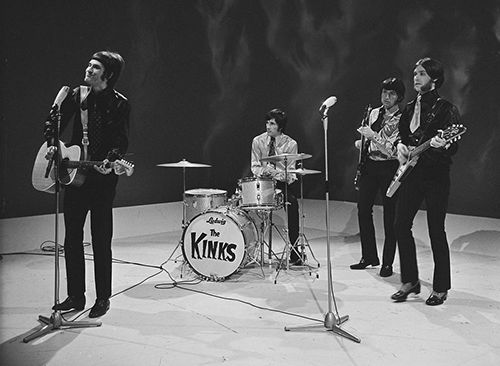Our new paper on popular culture: "Images of the Past in British Popular Music of the 1960s: ‘Relevant History’ of the Kinks" by Alexandra Kolesnik

The working paper ‘Images of the Past in British Popular Music of the 1960s: ‘Relevant History’ of the Kinks’ by Alexandra Kolesnik, Research Assistant at the Poletayev Institute for Theoretical and Historical Studies in the Humanities has been published. The author studies the historical imagery of British popular music in the1960s drawing on the example of the rock band ‘The Kinks’. Their interest in English folklore, musical and cultural traditions, widely known to the national audience, became an original reinterpretation of relevant events in England of the 1960s, and national history as a whole.
Abstract
In the late 1960s, British popular music, evolution of its aesthetic and thematic traits had some peculiarities. Light guitar-based music was flavored by English folklore and exceptional British subjects, live performances demonstrated certain theatricality, imagery of rock bands was linked to British cases becoming a peculiar way of exhibiting their ‘Englishness’. As a result of new British musicians’ desire to determine their own sound, they tend to rework the past and actively include national history subjects in their music. The paper analyzes the mechanisms of treatment with the past in British popular music of the late 1960s on the example of the rock band, the Kinks. Focused largely on the musical style of American blues on their first albums, since 1967 year the Kinks turned to British musical tradition rediscovering mainly music hall. Despite the fact that other British Invasion leaders, the Beatles and the Rolling Stones, also borrowed the music hall imagery, the Kinks embraced not only the external music hall style, but deeply adopted music form and subjects. An appeal to the widely recognizable tradition of the British music hall was occurring on the wave of general re-actualization of national past in England. The paper describes, firstly, particular historical subjects that became popular among the British audience in the 1960s; secondly, the format of treatment with the past, which is conditionally characterized as a ‘relevant history’.
